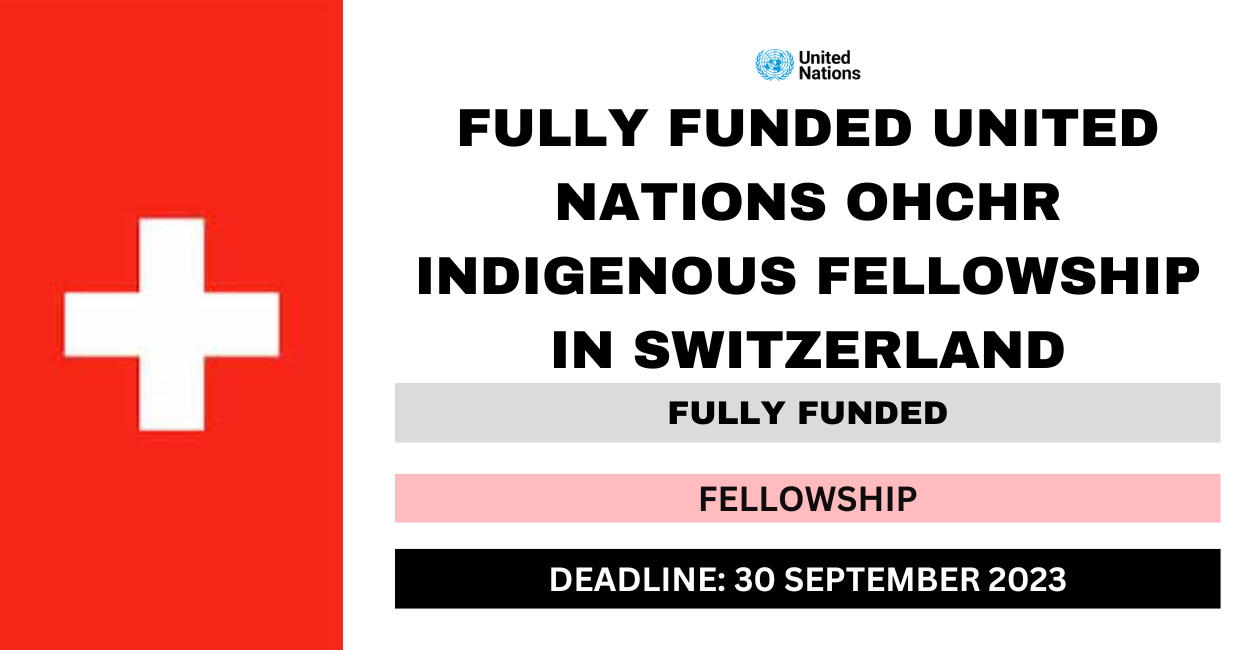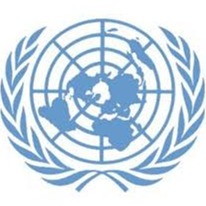Fully Funded United Nations OHCHR Indigenous Fellowship in Switzerland 2024

Summary
Introduction
The Fully Funded United Nations OHCHR Indigenous Fellowship in Switzerland is open to world’s indigenous people. The aim of the program is to provide Indigenous Peoples with the opportunity to learn about the work of UN institutions and mechanisms that deal with human rights in general and Indigenous Peoples’ issues in particular. Participants who complete the internship will be able to better assist their organizations and communities in protecting and promoting their rights. The 4 weeks fellowship programmed for the summer of 2024 will be available in 5 languages: English, Spanish, French, Russian, and Portuguese.
Fellows from all 5 language components of the program are trained together with simultaneous interpretation over 4 weeks in Geneva. The date of the training program usually coincides with the annual session of the Expert Mechanism on the Rights of Indigenous Peoples (June/July each year), allowing the fellows to participate more actively in that Mechanism.
Subscribe to our newsletter
Join us today and receive the best curated news, freebies and resources directly to your inbox every week!
No spam ever, unsubscribe at any time. Check out our Privacy Policy.
Benefits
The Fully Funded United Nations OHCHR Indigenous Fellowship in Switzerland will provide a return flight ticket, living expenses, and basic health insurance for the duration of the training.
Eligibility
The eligibility criteria for the Fully Funded United Nations OHCHR Indigenous Fellowship in Switzerland are stated below:
1. The candidate must be indigenous (non-indigenous persons will not be taken into consideration, even if they have close links with indigenous communities and/or organizations).
2. Age should not be a limitation to participation in the program.
3. Formal education should not be a limitation to participation in the IFP given the socio-economic barriers confronted by many indigenous peoples that limit access to formal educational institutions.
4. Candidates should agree to train other indigenous persons after they return to their respective communities/organizations.
5. The candidate should be proposed, and his/her candidacy supported by his/her indigenous organization and/or community. It is desirable that the sponsoring organization has a firm constituency or membership and that it is representative.
6. The candidate should have a good working knowledge of the language in which the program is imparted.
Other Scholarships by United Nations Organization
Fully Funded UN Youth for Biosecurity Fellowship in Switzerland 2024
United Nations International Law Fellowship in Netherlands 2024-25
Fully Funded United Nations OHCHR Indigenous Fellowship in Switzerland 2024
Fully Funded United Nations Fellowship 2024
Fully Funded United Nations Climate Change Conference in Egypt in 2022







